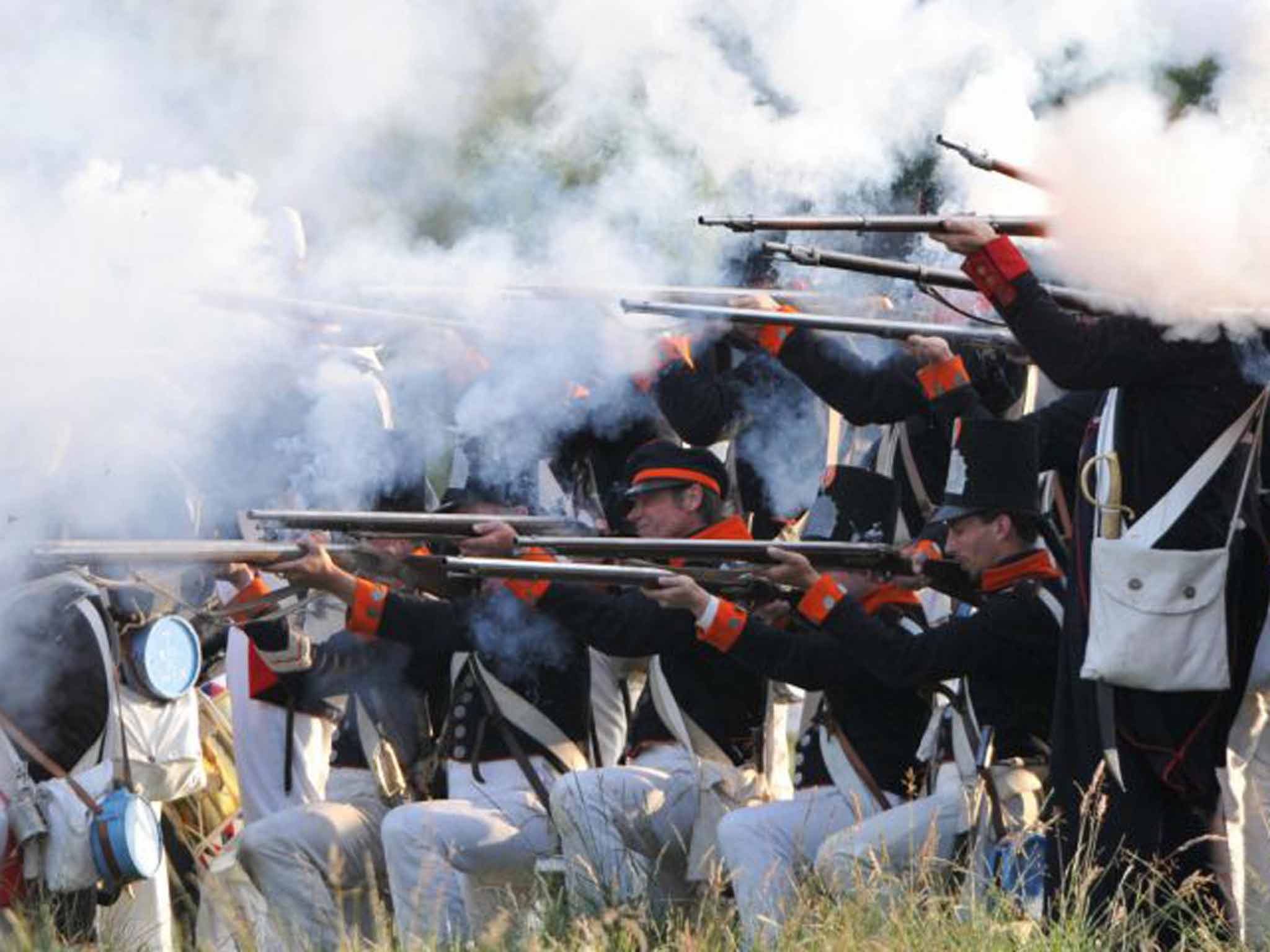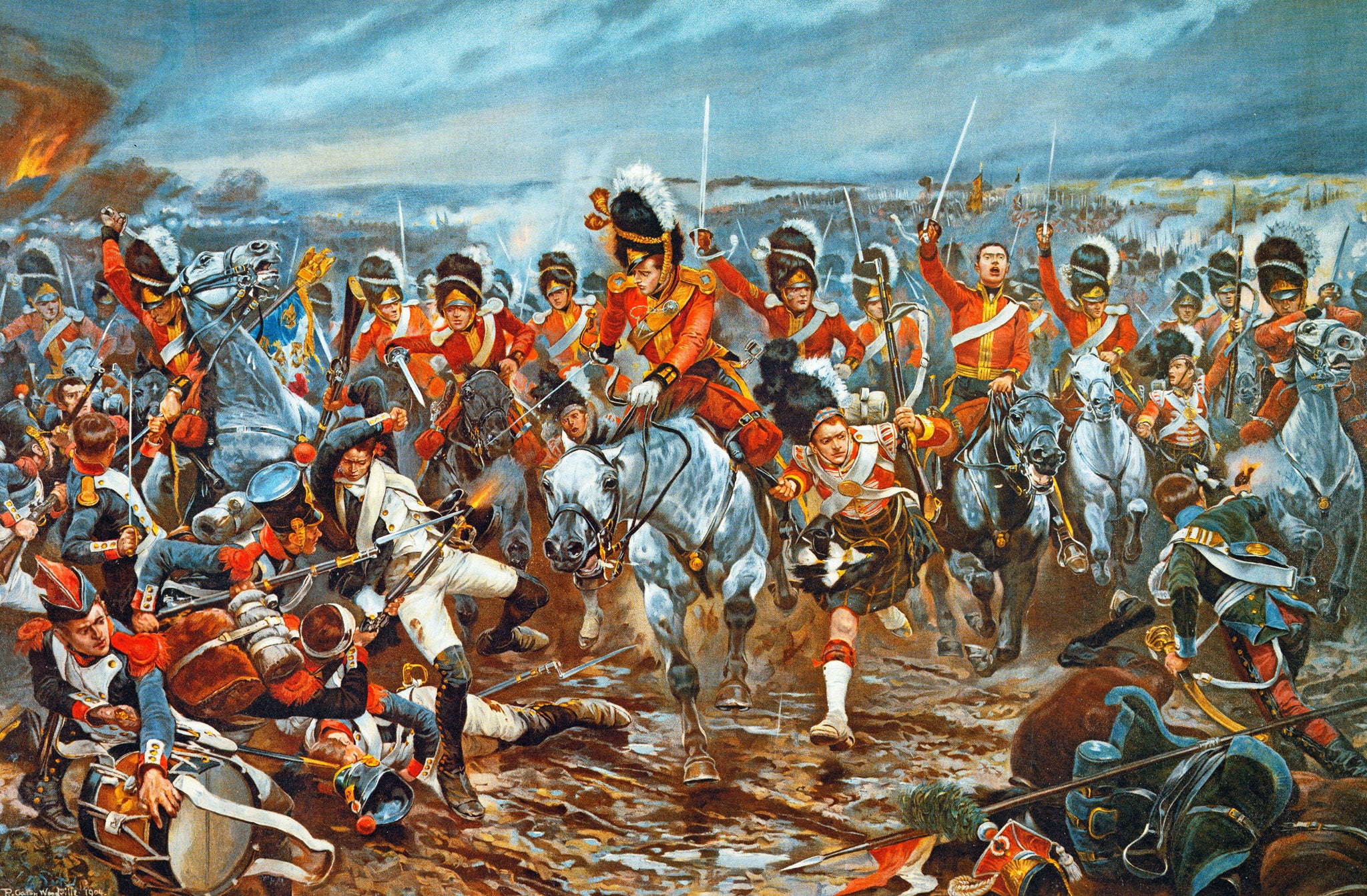The Battle of Waterloo: It was lucky the British won, as they had no plans to build an annoying empire
At least that's the story according to all the posh, right-wing historians


Your support helps us to tell the story
From reproductive rights to climate change to Big Tech, The Independent is on the ground when the story is developing. Whether it's investigating the financials of Elon Musk's pro-Trump PAC or producing our latest documentary, 'The A Word', which shines a light on the American women fighting for reproductive rights, we know how important it is to parse out the facts from the messaging.
At such a critical moment in US history, we need reporters on the ground. Your donation allows us to keep sending journalists to speak to both sides of the story.
The Independent is trusted by Americans across the entire political spectrum. And unlike many other quality news outlets, we choose not to lock Americans out of our reporting and analysis with paywalls. We believe quality journalism should be available to everyone, paid for by those who can afford it.
Your support makes all the difference.This week’s 200th anniversary of the Battle of Waterloo has been celebrated in many ways. One of the most amazing is that the Chilcot Inquiry into the battle is said to be ready for publication any day soon.
Apart from that, there have been several programmes about Napoleon to mark the event on radio and television, offering many different views from a wide spectrum of right-wing upper-class Cambridge historians.
Most of these accounts agree that Napoleon’s defeat brought “peace” by ending his crazed plans to dominate Europe and beyond. That’s why it was lucky that it was the British who won, as they had no plans whatsoever to use their powerful position to build an empire that might annoy people around the world in any way. If anything, Britain’s role over the next 100 years was too peaceful, and could have done with the odd rifle to liven the place up.
Often, these historians suggest the events of the times were the result of Napoleon’s personality. Andrew Roberts admires him, because he was a “man of destiny” who “didn’t listen to focus groups”. So, presumably, he must admire Kim Jong-un and Saddam Hussein in the same way, because say what you want about Saddam, at least he didn’t ponce around with focus groups before deciding who to torture.
And Bernard Cornwell said Napoleon needed to keep fighting as he got bored easily. That must be why thousands followed him into battle. They thought, “We’ll all freeze to death in the Russian winter but it will stop the old boy getting fidgety and that’s even worse.”
Then there’s the common theory that Napoleon was driven by his complex about being short. He’d walk into the kitchen, stretch and say, “It’s not fair, I can’t reach the marmalade on the top shelf – that’s it, I’m invading Italy.”
In any case he was 5ft 6in, which was the average male height at the time, but who among us wouldn’t get cross at being a height that would be considered short in 200 years’ time?
The story may be more complicated than is conveyed by these accounts, because the battles against Napoleon weren’t wars between countries, they were wars between ideas. To the rulers of Europe, Napoleon represented the French Revolution and had to be destroyed. The commander the Duke of Brunswick started things off, declaring the King, who had been overthrown, must be “restored to the rightful place he inhabits by nature”, and anyone who didn’t co-operate would be “subject to an ever memorable vengeance”.
I suppose the explanation for the Duke of Brunswick being that angry is that he must have been only 5ft 5in.
Despite the Duke’s gently persuading words, support for the revolution spread to become the biggest global movement up to that time. In Britain, the radical Thomas Paine wrote The Rights of Man, calling for an end to the power of the monarchy and aristocracy, and suggesting plans for the vote and a welfare state, including hostels for the homeless, and for the poor to have their funerals paid for by the government.
A Daily Mail front page of the time probably declared, “We uncover the cheats deliberately dying to get their free coffins.” Then Liz Kendall insisted, “the books must be balanced before we start clearing up corpses”. Paine’s book was made illegal, and you could be jailed for owning a copy.

However, it was bought by hundreds of thousands who supported the French Revolution in illegal societies, and the British government responded by sending out thousands of spies, and creating curfews in the most rebellious towns.
After Napoleon seized power in France, the governments of Europe had a single figure they could hate, which always makes things easier. Then Napoleon made himself Emperor, reintroduced slavery, had himself painted like a God, and handed out conquered countries to members of his family, which could, if you were being picky, be said to have compromised the ideals of the Revolution.
By the time he lost at Waterloo to the Duke of Wellington, most of his supporters had become dismayed and disillusioned. The Duke, on the other hand, showed his devotion to the poor and homeless that made up most of the British forces by referring to them as the “scum of the earth”.
Conservative historians suggest this doesn’t mean he had contempt for them, offering theories such as, “Scum of the earth was an affectionate term back then, and lovers would often sigh ‘you’re my scummy little scum-scum of the earth’ to each other, while they were weaving or being press-ganged into the navy.”
But another possibility is that the rulers of Britain at the time of Waterloo did consider the poor to be the scum of the earth. That may be why, in the following years, there were countless marches and riots in support of the vote and for relief for the poor when they were thrown out of work.
Among the most irate were soldiers who had been at Waterloo, as many of them were left destitute after coming back injured, a situation no doubt made worse by them being declared fit for work by Atos, who gave them a musket and said “you’ve still got one leg, now get back in the Army and invade Prussia”.
Four years later the government ordered an attack on a demonstration in Manchester in support of the vote, and 13 protesters were killed, including John Lees, a former soldier who’d fought at Waterloo.
So the government should issue instructions, explaining whether we’re supposed to commemorate John Lees as a hero, or condemn him as a troublemaker because it’s confusing.
Because Waterloo was one of our great victories, and we should celebrate it every year by burning accordions and firing baguettes out of a canon, and honour the day we defeated the dreadful idea that everyone is born equal, by asking a random assortment of people who went to Eton to tell us about our history on the television.
Join our commenting forum
Join thought-provoking conversations, follow other Independent readers and see their replies
Comments